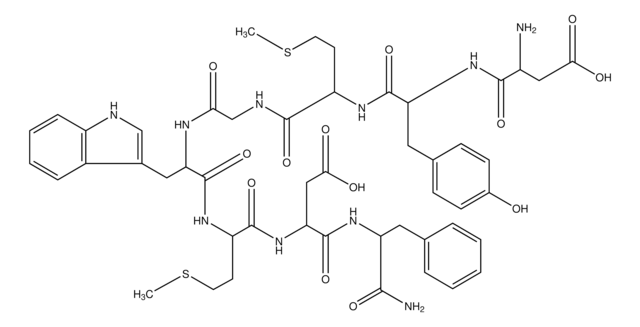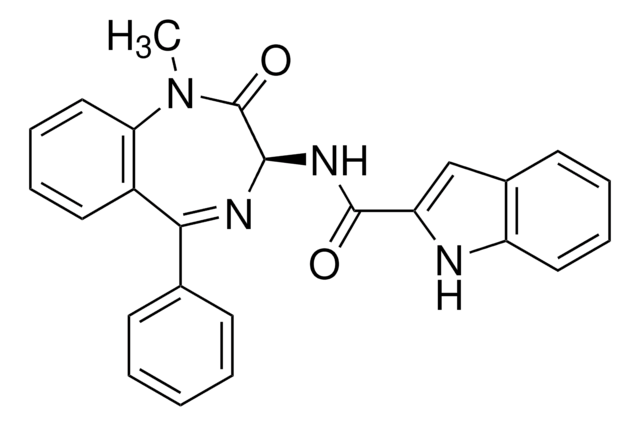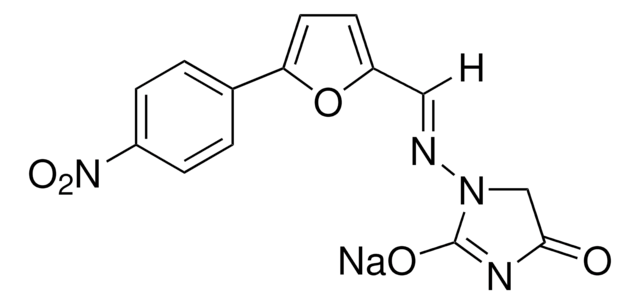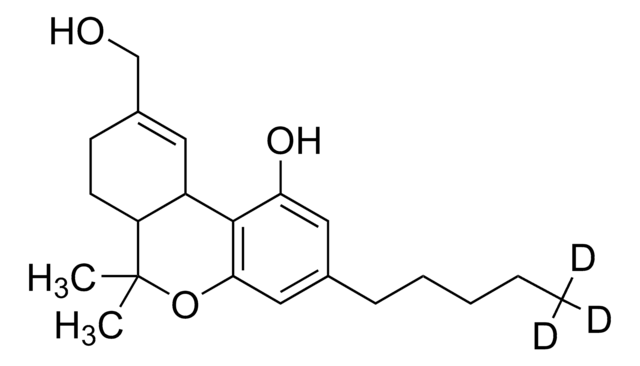Key Documents
L109
Lorglumide sodium salt
solid
Synonim(y):
(±)-4-[(3,4-Dichlorobenzoyl)amino]-5-(dipentylamino)-5-oxopentanoic acid sodium salt, CR 1409
About This Item
Polecane produkty
Postać
solid
kolor
white
rozpuszczalność
45% (w/v) aq 2-hydroxypropyl-β-cyclodextrin: >10 mg/mL
H2O: 10 mg/mL
methanol: 28 mg/mL
ciąg SMILES
[Na+].CCCCCN(CCCCC)C(=O)C(CCC([O-])=O)NC(=O)c1ccc(Cl)c(Cl)c1
InChI
1S/C22H32Cl2N2O4.Na/c1-3-5-7-13-26(14-8-6-4-2)22(30)19(11-12-20(27)28)25-21(29)16-9-10-17(23)18(24)15-16;/h9-10,15,19H,3-8,11-14H2,1-2H3,(H,25,29)(H,27,28);/q;+1/p-1
Klucz InChI
JCNPYMDDOUQTBK-UHFFFAOYSA-M
informacje o genach
human ... CCKAR(886)
Zastosowanie
Działania biochem./fizjol.
Kod klasy składowania
11 - Combustible Solids
Klasa zagrożenia wodnego (WGK)
WGK 2
Temperatura zapłonu (°F)
Not applicable
Temperatura zapłonu (°C)
Not applicable
Środki ochrony indywidualnej
Eyeshields, Gloves, type N95 (US)
Certyfikaty analizy (CoA)
Poszukaj Certyfikaty analizy (CoA), wpisując numer partii/serii produktów. Numery serii i partii można znaleźć na etykiecie produktu po słowach „seria” lub „partia”.
Masz już ten produkt?
Dokumenty związane z niedawno zakupionymi produktami zostały zamieszczone w Bibliotece dokumentów.
Nasz zespół naukowców ma doświadczenie we wszystkich obszarach badań, w tym w naukach przyrodniczych, materiałoznawstwie, syntezie chemicznej, chromatografii, analityce i wielu innych dziedzinach.
Skontaktuj się z zespołem ds. pomocy technicznej![(Tyr[SO3H]27)Cholecystokinin fragment 26-33 Amide ≥97% (HPLC), powder](/deepweb/assets/sigmaaldrich/product/structures/125/021/32eb71ec-73e5-4cfc-94d0-ebcf5e784e39/640/32eb71ec-73e5-4cfc-94d0-ebcf5e784e39.png)








